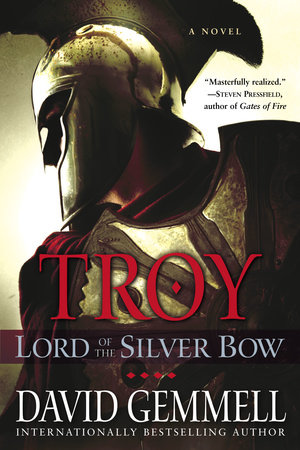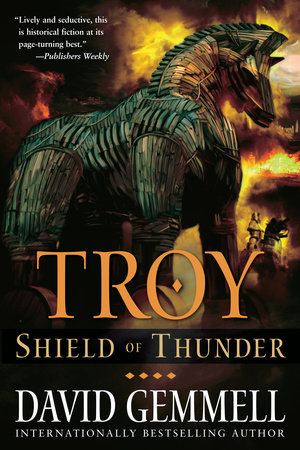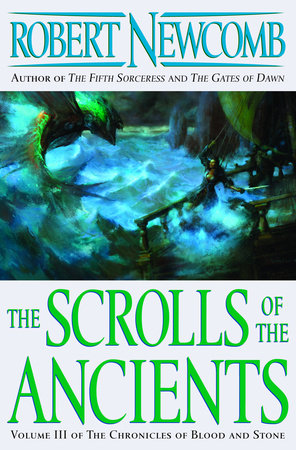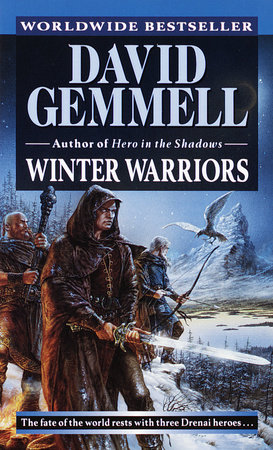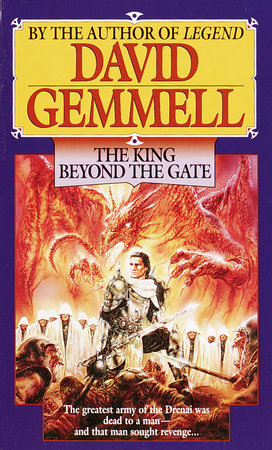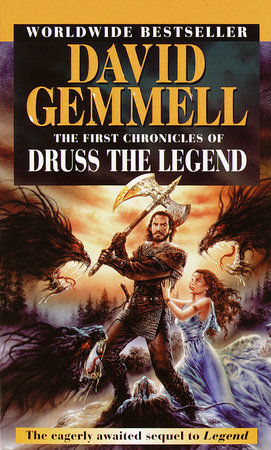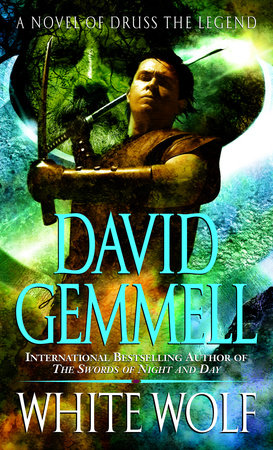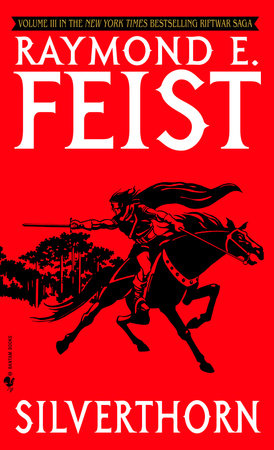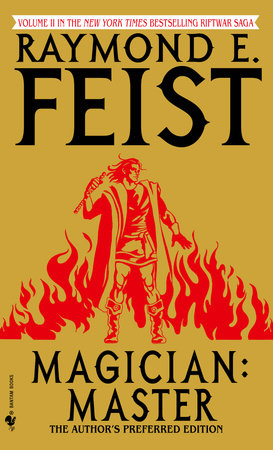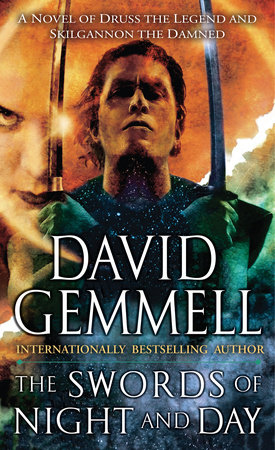Interview with David Gemmell author of TROY: LORD OF THE SILVER BOW.
Question:Troy seems to represent something of a shift for you, both in genre and geography. Instead of a fantasy set in an alternate world with recognizable connections to Celtic history and mythology, you’ve turned for inspiration to ancient Greece and Homer’s great epic, The Iliad. What drew you to this material, and why now?
David Gemmell:Inspiration comes from many sources. I remember once driving home and listening to the radio. A song came on, sung by Tracy Chapman. There was a line in it: "Across the lines, who would dare to go?" In that moment a scene leapt into my mind. From that scene came the entire novel The Last Guardian. The story of Troy has enchanted me since I was a small child. A couple of years back I saw a pottery shield with a scene on it. It was Achilles dragging the body of Hector around the walls of Troy. In the background was a woman holding a baby. As I looked at her, I wondered: Who are you? Then I began researching, and then writing.
Q:There are many English versions of The Iliad: translations by poets from Pope to Fagles, novels by writers like Lindsay Clarke, and movies, the most recent directed by Wolfgang Petersen and starring Brad Pitt as Achilles. The story itself is one of the best known in literature. Was it difficult to approach such familiar material from a fresh direction?
DG:The short answer is no. I have not seen the Troy film, nor read any other novel set in the period. My wife, Stella, is now virtually an expert on the Iliad, and I refer to her for my research. That way I can feel the characters are fresh and entirely the product of my own imagination.
Q:What source material did you use?
DG:We have scores of research books detailing bronze-age Greece. It is actually amazing to discover how little is known about the period! I am constantly coming upon odd little facts that remain baffling to experts. I am still trying to find out why ostrich egg shells were so valuable . . .
Q:How did you balance the two Troys, the historical and the Homeric, in creating your own version of the city and the epic tale surrounding it?
DG:No attempt was made to balance the two. The historical Troy discovered by Schliemann is in fact tiny. The Homeric troy was colossal. I have merely created a city large enough to withstand a long siege and peopled with enough heroes to make the siege fascinating.
Q:One interesting choice Petersen made in filming Troy was to eliminate the gods as the central movers and shakers in the conflict, stripping Homer’s tale of its fantastic elements. You’ve also chosen to focus on men and women, not gods. Why?
DG:People are infinitely more interesting than immortals. When a human hero fights, he risks his life. Immortals can be cut in two and then put back together. I wanted the events of the war to have real pathos, for readers to see the tragedies and feel the pain, and to have their hearts soar with the triumphs.
Q:Your main character is Helikaon, better known to literature as Aeneas, whom the Roman poet Virgil was the first to pluck out of Homer’s epic for purposes of his own. Will future volumes in the trilogy follow his adventures after the siege of Troy?
DG:I am two-thirds of the way through Shield of Thunder, and still to begin the Fall of Kings, the final book in the trilogy. For now, I don’t think I’m ready to talk about what happens to Helikaon in those books.
Q:He seems to be a man of extremes–certainly other characters are extreme in their opinions of him. How closely does your portrayal follow that of Homer and Virgil? And why is he known as the Lord of the Silver Bow?
DG:My portrayal doesn’t follow either Virgil or Homer: it follows Gemmell! The title, Lord of the Silver Bow, is one given to the god Apollo. In an early section of the novel, a child mistakes Helikaon for the god, and later, as a humorous gift, a friend sends him a silver bow.
Q:Andromache, betrothed to the Trojan prince Hektor, is a fascinating woman: priestess, warrior, and princess. Here you had less source material to rely on, I imagine. Was it a relief to let your imagination run wild?
DG:My imagination always runs wild–for which I am more than thankful. Andromache is a great character. I don’t say that in any vain way. When authors talk of great characters, what they really mean is easy. Some characters are tough to write. The author has to constantly stop and work out what they will say or do. With the great characters, this problem disappears. Their dialogue flows instantly, their actions likewise. A friend of mine calls them "Ricks Bar characters," from the film Casablanca. Some characters you have to build, like a sculptor carving them from rock. Others just walk out of Rick’s Bar fully formed and needing no work at all. Andromache came strolling out of Rick’s Bar.
Q:You present Agammemnon and the Mykene as arrogant, brutal warmongers, which is pretty much how Homer depicts them too. Yet somehow they’ve come to be viewed in the popular imagination as timeless heroes–why?
DG:Alexander the Great is remembered the same way. Most people don’t realize that the Persian empire he made war upon was the most civilized in early history. They had developed universities, in order for young people from peasant families to be educated. They had an international postal service, so that letters could be sent all over the empire. They had a form of social security so that their people did not starve during famines. They wanted to share their knowledge, and so built a great library containing works of history, science, and religion. They had interpreters there so that foreigners could learn the secrets they has so patiently gathered. The entire works of Zoroaster were kept there, inscribed with gold on sheepskin. Alexander, while drunk, thought it would be great fun to burn it all down. Which he and his generals did. They then destroyed the Persian Empire, plunging the Mediterranean world into a series of bloody wars that lasted for generations. Why is he a hero? Beats the heck out of me!
Q:Argurios, a Mykene warrior, is sworn to kill Helikaon, yet winds up in his debt, bound to him by his honor as a warrior and a man. What is it that sets him apart from so many of his countrymen?
DG:Argurios is a warrior, and a man bound by the warrior’s code. He has no understanding of politics, and his rigid values make him ripe for betrayal by those who do understand the cesspit of political thought.
Q:I enjoyed your take on the wily Odysseus! I would guess that he’s a favorite character of yours as well.
DG:Odysseus is great fun to write. Probably–after Andromache–my favorite character.
Q:Remembering the support that Londoners sent to New York following 9/11, New Yorkers’ hearts went out to the people of London after the recent terrorist bombings. With Troy still fresh in my mind, I couldn’t help wondering just how far the human race has come since those blood-drenched days. Does The Iliad hold lessons for us as the War on Terror continues?
DG:Someone once said that the only thing we learn from history is that we learn nothing from history. In the Second World War, members of the fledgling French Resistance could not gather a great deal of support. The Germans, operating on a policy of friendly occupation, were, if you like, winning the battle of hearts and minds. The leaders of the Resistance continued their attacks on German soldiers. Eventually they got what they desired. The German High Command, exasperated and angry, changed their tactics. For every German killed, ten civilians would be rounded up and executed. This was their War on Terror. They hoped that a display of ruthless force would terrify the populace and starve the Resistance of support. It achieved the exact opposite of its intention. Civilians, horrified and angered by the killings, began joining the Resistance in ever increasing numbers.
Since 9/11, we too have been applying the principle of ruthless force against civilian targets to combat terrorists. History tells us it will fail. Which, I guess, is why our modern politicians don’t like studying history.
